You'd be hard pressed these days to find someone who hasn't heard of the Great Pacific Garbage Patch. First discovered in 1997 by yachtsman Charles Moore, the great patch floats in the open ocean between Hawaii and California. It is a massive gyre of discarded plastic, brought together by open ocean currents, that is estimated to be larger than the state of Texas. While often circulated rumors of the patch being visible from space aren't true, the patch is "home" to an estimated 1.8 trillion pieces of plastic. But, while most of the conversation surrounding plastic pollution in our oceans focuses on water bottles and plastic straws—neither are the biggest sources of plastics pollution in our seas—fishing nets are.
A study from earlier this year revealed that fishing gear accounts for over half of the plastics floating in the great patch. And, the vast majority of that gear is comprised of what are commonly known as ghost nets—lost or discarded commercial fishing nets. Though the numbers suprised the scientists leading the study, the results revealed that 46 percent of the Great Pacific Garbage Patch is made up of ghost nets. And much of the same is true throughout oceans across the globe.

Fishing nets are not only the most plentiful form of plastic garbage floating in our oceans, but potentially the most harmful. Over 100,000 marine animals are strangled or suffocated to death each year by ghost nets.
Experts warn that plastic pollution in the ocean is expected to increase rapidly unless serious efforts are undertaken to remove existing plastics and prevent new plastics from reaching the ocean.
A few years back, Costa Sunglasses started its #KickPlastic campaign to help with the prevention part of that equation—by educating individuals about the amount of consumer plastics reaching the ocean. Most specifically, #KickPlastic focused on those aforementioned plastic water bottles, more than a billion of which find their way into our oceans each year. More recently, Costa launched its 'Untangled' Collection, which aims to tackle the need to remove the plastics we've already trashed our oceans with.
The effort is a partnership with Bureo, a pioneer in recycled fishnet products, where discarded fishing nets are purchased from local fishing communities around the globe. The program provides local communities with a financial incentive to prevent damaged or otherwise non-functional nets from being discarded into the oceans and, more importantly, collect already discarded nets from the water. To date, Bureo has collected over 220,000 pounds of ghost nets from our oceans.

Once retrieved, the nets are collected and taken to a facility where they are cleaned and prepared for processing. The nets are then ground up and fed into a pelletizer which reduces the nets to raw form that can then be melted and poured into injection molds to produce products like sunglass frames for Costa's Untangled collection.
Holly Rush, Costa's CEO notes that “Healthy oceans have always been a crucial part of our core mission at Costa. The Untangled Collection is helping to raise awareness and provide a solution to keep discarded fishing nets from being lost in our oceans each year. Through this important program, we will also help Bureo scale and replicate its net collection program to a growing number of fishing communities.”
“Aligning with partners that really want to support us and expand our mission is how we’ve grown over the past five years,” said David Stover, CEO and cofounder of Bureo. “Working with Costa to develop the Untangled Collection is another step in the right direction—not only for us, but for the replication of solutions to secure a healthy future for our ocean and its ecosystems.”

“Nets lost at sea are four times more harmful than all other forms of ocean plastic pollution combined,” added Rush. “This new collection is a positive step towards untangling our oceans and creating awareness for the dangers our oceans are facing.”
The Untangled collection is just part of an ongoing effort by Costa to reduce its use of traditional plastics and its carbon footprint. In recent years, Costa has moved to a bio-resin in its core product line which, because it is sourced from the castor plant instead of petroleum, results in reduced emissions. The company has also introduced its 'Del Mar' product line, a collection of sunglasses made from a renewable, non-petroleum, plant-based acetate material. According a spokesperson for the company, Costa "will continue to uphold [its] commitment to 'Kick Plastic' and seek alternatives that are more environmentally friendly."

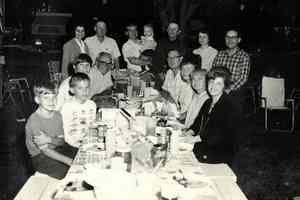









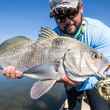

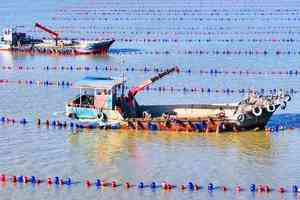
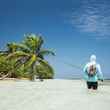

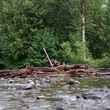
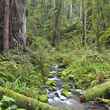









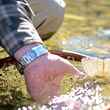
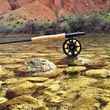
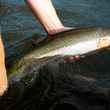
Comments